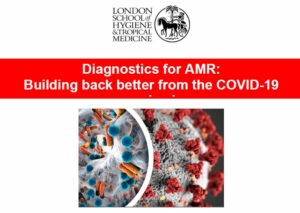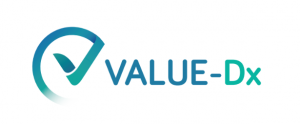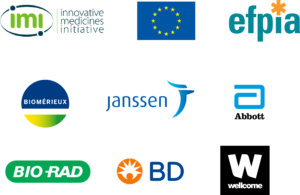 The VALUE-Dx project encouraged all relevant stakeholders to partake in a Massive Open Online Course (MOOC) on Diagnostics for AMR: Building back better from the COVID-19 pandemic, developed by the London School of Hygiene & Tropical Medicine in partnership with Becton, Dickinson and Company (BD).
The VALUE-Dx project encouraged all relevant stakeholders to partake in a Massive Open Online Course (MOOC) on Diagnostics for AMR: Building back better from the COVID-19 pandemic, developed by the London School of Hygiene & Tropical Medicine in partnership with Becton, Dickinson and Company (BD).
This free three-week course provided valuable insight into how COVID-19 has affected country AMR programmes and how countries can explore the lessons and benefits that the responses to the COVID-19 pandemic hold for AMR. You were able to learn at your own pace with a faculty of leading experts in COVID-19 and AMR and be part of the largest community of AMR professionals on the cutting edge of new information.
- You learned about diagnostic technology innovations and diagnostic capacity increases developed in response to the COVID-19 pandemic and how they can be applied to the AMR response.
- You learned about the importance of quality and data systems for AMR diagnostics and AMR data sharing to strengthen surveillance and reporting, and opportunities for professional development as part of a culture of continuous learning.
- You got the opportunity to join discussion forums to share your knowledge and views with colleagues and benefit from the experiences of other learners from around the world.
How can the COVID-19 pandemic help us defeat Antimicrobial Resistance?
Having the latest data for COVID-19 allows policy makers, clinicians, and the public to do their part in the fight against this pandemic. Many countries still lack sufficient data on antimicrobial resistance (AMR) trends to develop national and local treatment guidelines and policies. “Without data, you are just a person who has another opinion…with data, you can convince people there is an issue”, says Dr. Amal Saif Al-Maani, AMR expert from Oman.
In addition, we have made numerous investments in science, diagnostic testing capacity, and innovations in data systems we can leverage to do better with AMR before it’s too late. “Now is the time to learn more about the diagnostic technology innovations and diagnostic capacity increases that developed in response to COVID-19, and how they can be applied to the AMR response”, says Professor Rosanna Peeling, Director and Chair of Diagnostics at the International Diagnostics Centre at the London School of Hygiene and Tropical Medicine.
COURSE SYLLABUS
Week 1 – Updates on the AMR response and the impact of the COVID-19 pandemic
Week 2 – Better diagnosis, surveillance and reporting for AMR
Week 3 – Building back better for a robust and sustainable AMR response


